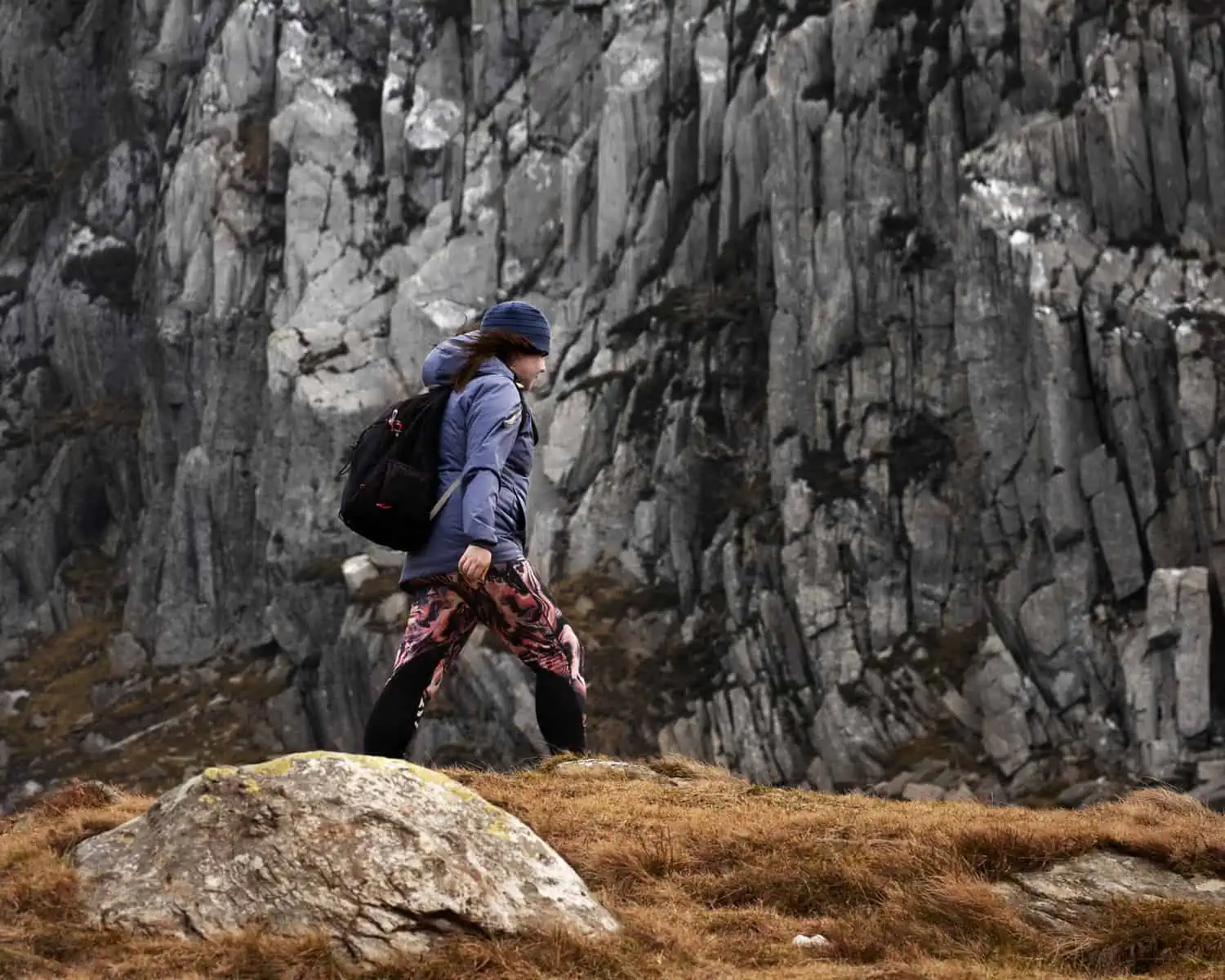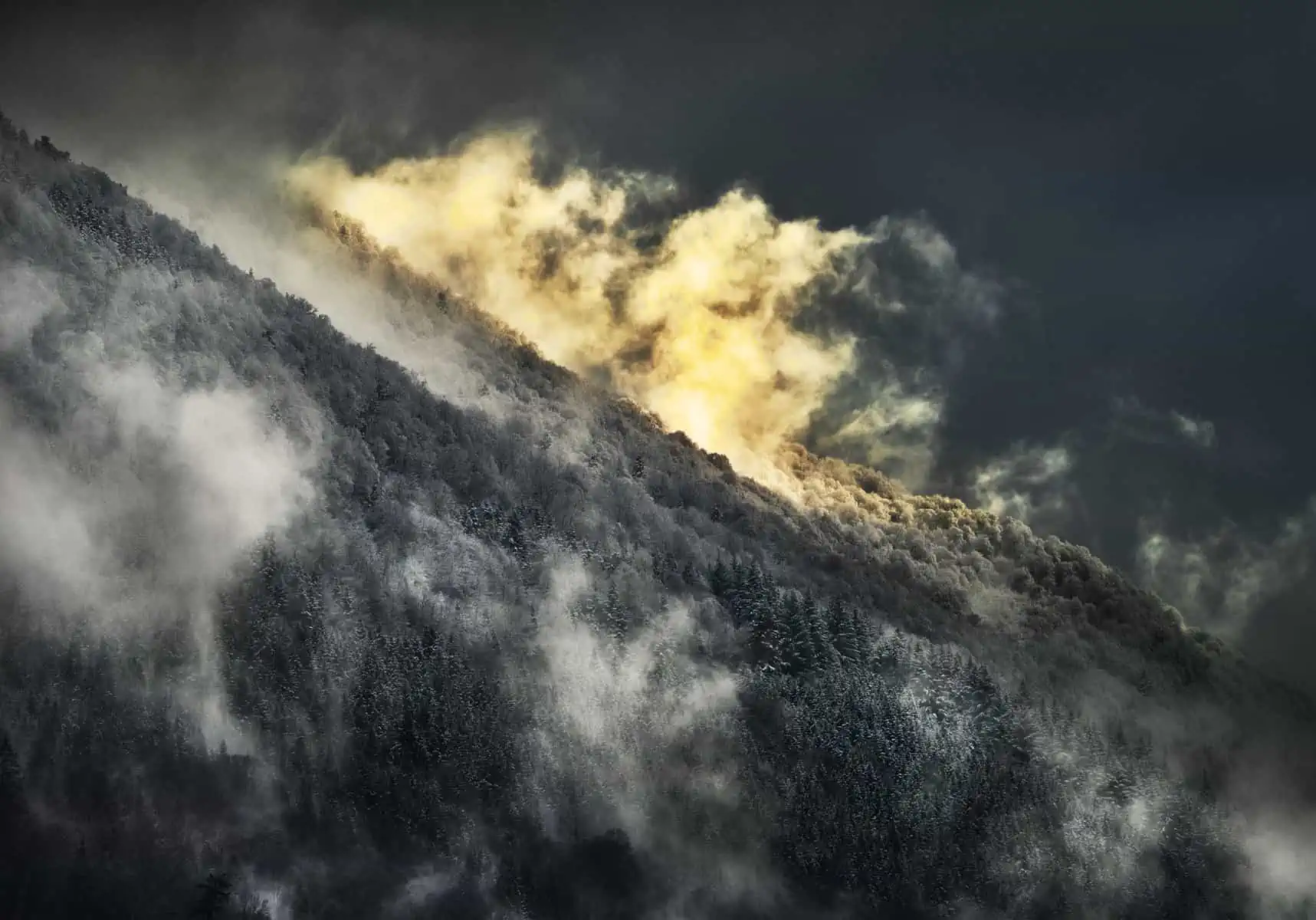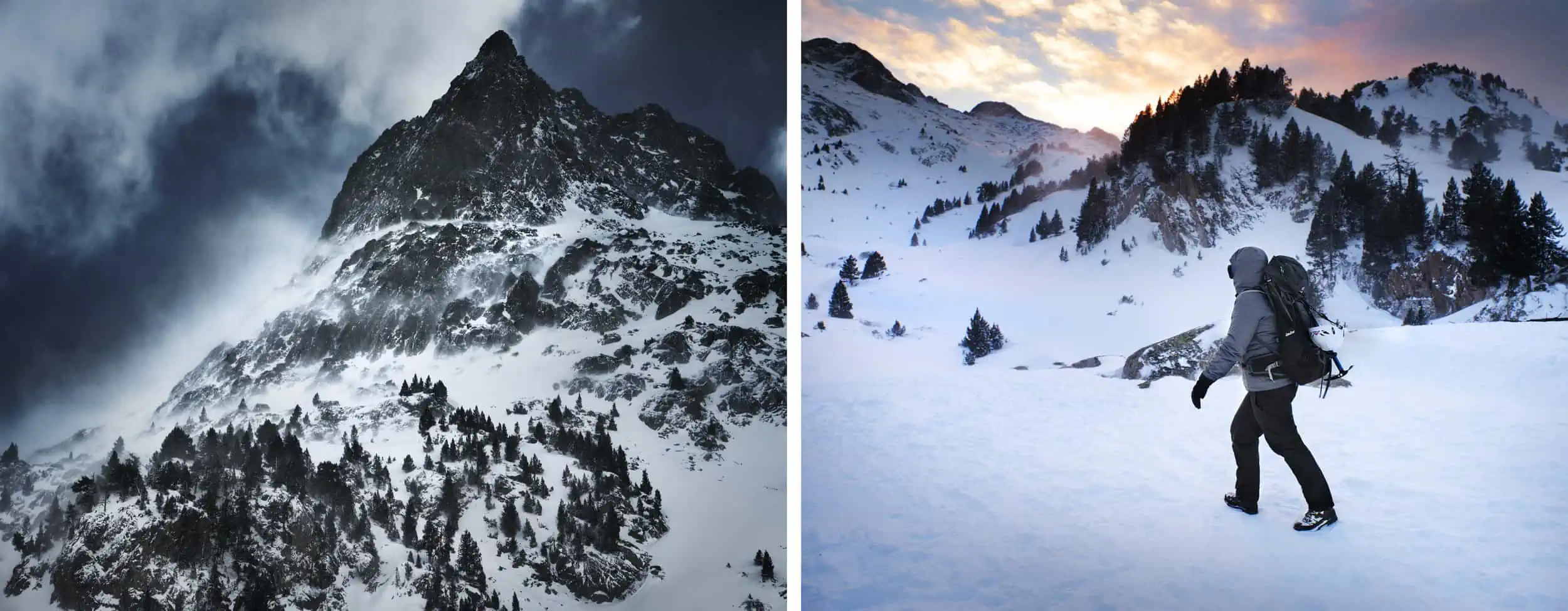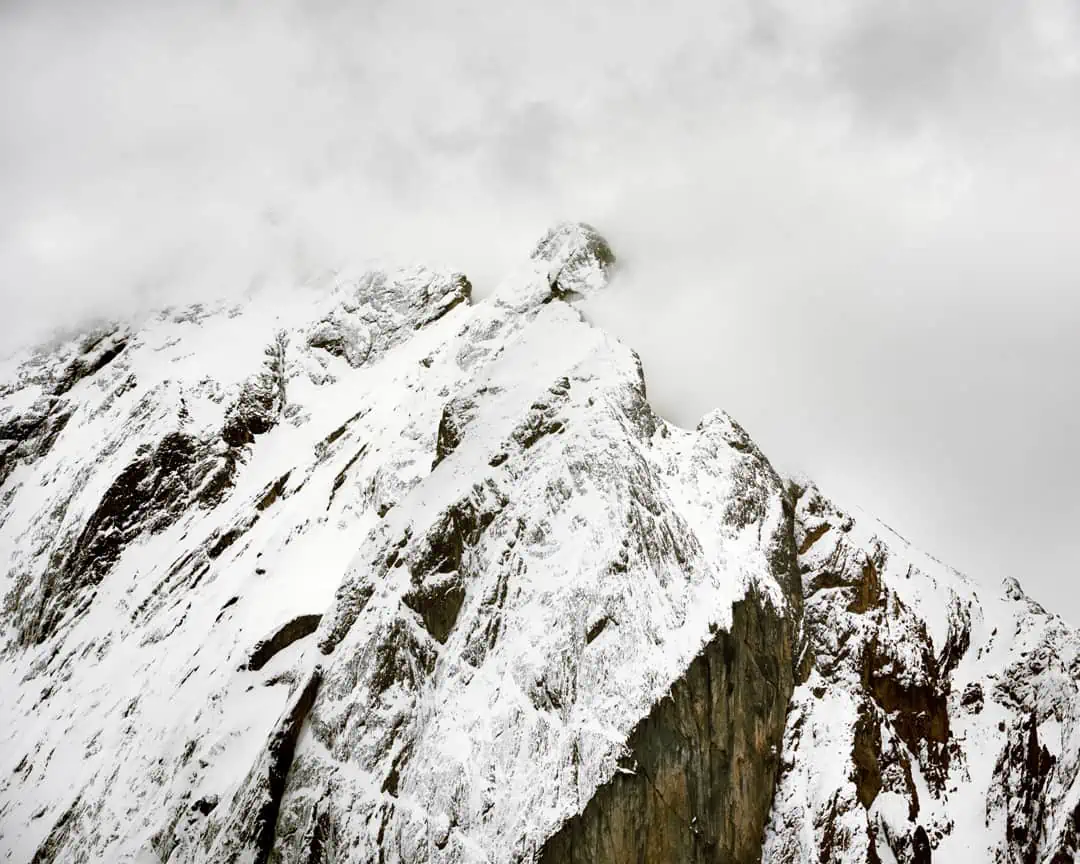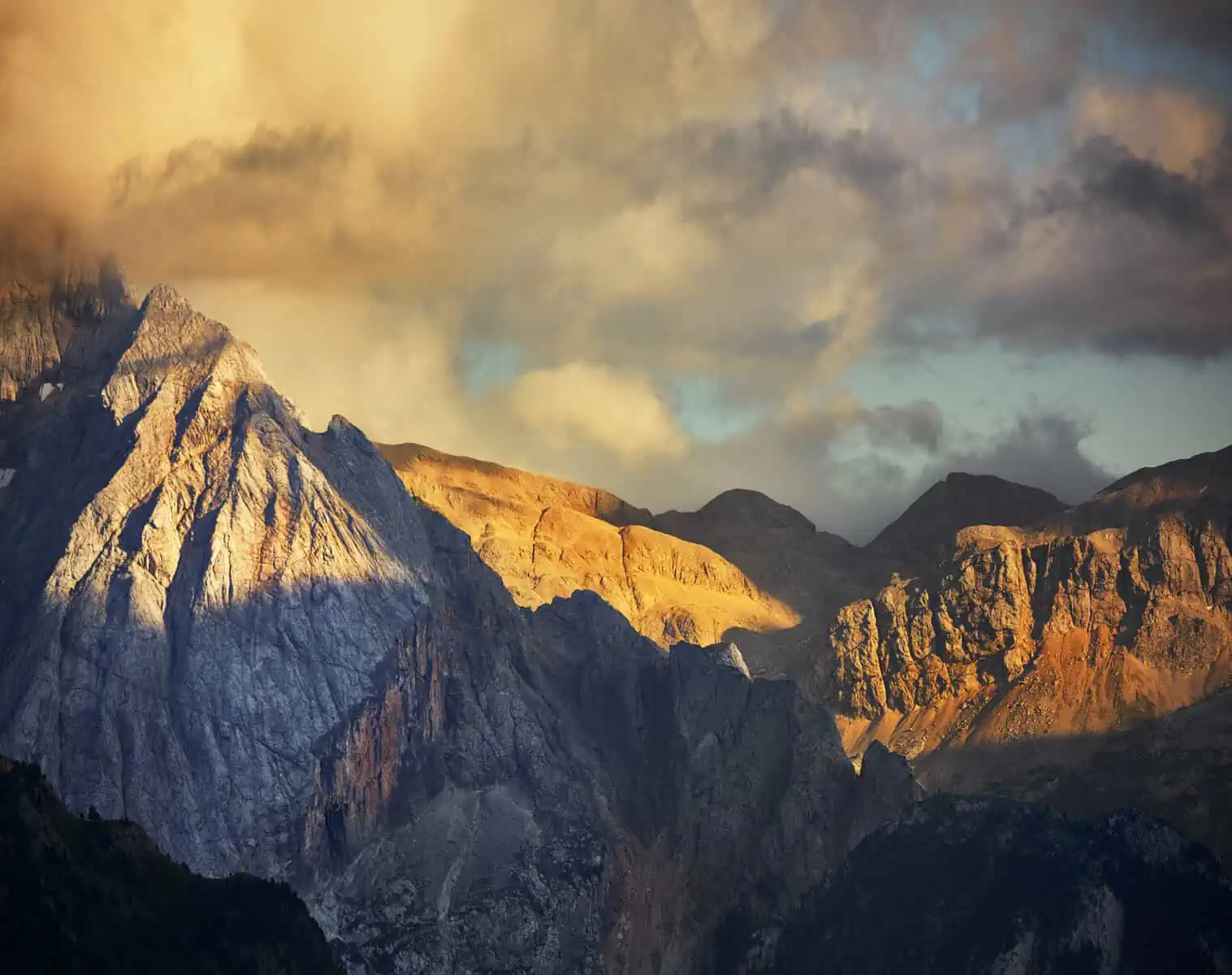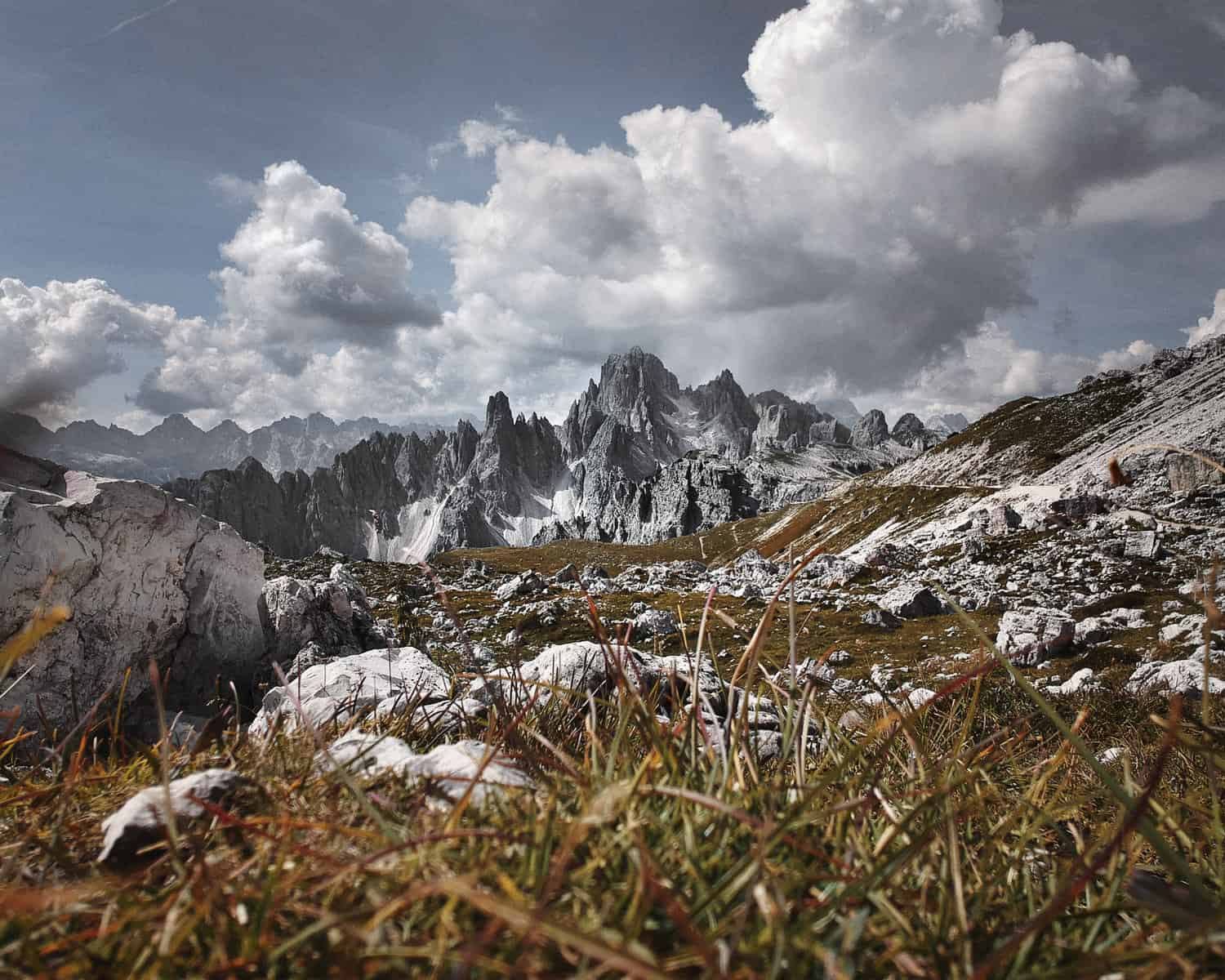Something occurred to me recently that, when I started looking further into it, realized it was actually something that is a problem for a lot of people and that is how our perception of events affects our enjoyment of them. Why are there some things that happen in our lives that we feel confident and happy about, and others we want to run as fast as possible away? Aside from these questions, how does this apply to travel, adventure and hiking?
I can give two really clear-cut examples of this. I could keep writing for days of all the experiences I’ve had that have affected my hiking and confidence with adventure in both positive and negative ways largely down to my perception or often pre-conception of the event.
The first example is how my fears and anxieties got in the way of me enjoying, or rather, feeling emotionally on top of our winter expedition in the Pyrenees. Usually, before we decide to do something that is going to really stretch ourselves, I’ll be really excited. When those ideas come, it’s almost like I’m deciding from the true me, the me that doesn’t see restriction or worry. Then after a while the self-doubt can set in. ‘I can’t do that. I’m not going to be able to make that work. What if it’s scary?’ I’ve come to a point with those thoughts where I am so aware of the pattern they take, that every time I get to work on seeing them and changing them to be thoughts that are helpful for me, it becomes easier. This trip, however, felt ultimately different. No amount of inner work and positive re-enforcement seemed to help me. This further increased my frustration. I’d convinced myself that I wasn’t fit enough. Because I had convinced myself of this, my motivation went down quite a lot when training for the expedition. I flitted between feeling strong and believing I was capable of this, to worrying. One of the hikes I remember the most was a prep hike with our really heavy packs, simulating what we’d need to carry on the hike in, and I felt so tired. Rather than perking myself up in moments of tiredness like I usually do, I’d let myself get into this spiral of worrying that if I couldn’t do a simple hike at sea level, how was I going to manage this at a higher altitude and in snow? I didn’t want to get on the flight out, I was nervous and thought a number of times about actually not going. Even though the group of people we were doing it with were also nervous and I had a lot of conversations with them and we managed to rationalize a lot, and we were in good hands with our team, I just couldn’t stop worrying. The hike in was one of the hardest experiences of my life to date, and I don’t say that lightly. It was snowing like crazy and we were hit by a blizzard. It was bitterly cold, and I just convinced myself I couldn’t do it. Luckily, I was supported by a truly awesome human being called Nat who looked after me and pushed me when I felt like I couldn’t do it. I had to dig incredibly deep to get up to that hut.
In conversations since with Matt, we’ve talked many times about how I more than easily had the strength and fitness level to get up to that hut, but a lot of it was mental. Sure, it was a really tough hike, probably the toughest one I’ve done, but I had it in me to do it. I got to the point where I felt like I would rather just sit there and die than make it up to that hut. Or that I could stay out there and just be ok and make it up in the morning. In reality, those thoughts were not good ones. To me, at the time, they felt like the only way. At one point I fell over and could hear the guide telling me that I needed to get up so we could move quickly before the storm got worse, and after a while, her voice seemed to just leave, and I felt peaceful. I’ve got no idea how long that happened for, probably only a matter of seconds or minutes but it felt like it carried on forever. I remembered telling myself that I was quite happy to stay there and give up. Interestingly, what happened next was that I got up and made it there a lot quicker, with a lot more strength than I’d had moments previously. I don’t know if that was just some kind of survival instinct kicking in, but it worked. What I saw in myself that day was something I didn’t like. I saw an intense weakness rather than the strength I tapped into to get there. That effected my ability to concentrate for the whole week we were there. The hike out was pretty brutal as well; we were trying to get out of avalanche zones as quickly as possible and the only thing that seemed to keep happening was falling over in the knee-deep snow. Trying to right yourself on snowshoes, with a 18kg pack on your back is harder than you would imagine! What was incredibly interesting there, though, is when we were through the worst of what needed concentration to get through and we were into the easier terrain, my brain was still going to thoughts of ‘I don’t think I can do this’. I immediately noticed this and started a really involved conversation with one of the guys who was on the expedition too. That last couple of hours of hiking was so much easier because my mind was elsewhere. I learnt so much from that experience, and it genuinely has made me a better hiker, and certainly a lot less apprehensive about things that worry me. I found I was able to do some really big things after that. I’m not trying to get across a point here that if something feels bad to you that it is always in your head. I do not believe that is the case. I do not believe that every time something bad happens that it is our perception of it that makes it bad. But I often wonder how much differently I would have experienced this event if I had not been so worried mentally that I couldn’t do it? I wonder if I’d have been able to tackle this difficult, tough situation in a bit more of a level headed way, I might not have experienced some of the things that happened.
The second example is completely intertwined and represents the same experience but at completely opposite ends of the spectrum. The first is regarding the first time we headed to The Dolomites in Italy. When we were getting into hiking, I started to realize I had a bit of an uneasiness with heights. It just wasn’t something I’d noticed before because I’d never really had the opportunity. There had been a couple of hikes up to that point in the places we’d been where I’d felt an uneasiness whilst we were hiking. I felt quite apprehensive before the trip to The Dolomites, and I wondered what was going on. The Alps understandably were on another level to anything that I’d ever hiked before. Whilst we drove the mountain passes taking in the breathtaking scenery, I felt sick. I was scared of the drop offs on the side of the roads. I let this fear take over so much that I didn’t want to drive on any of these roads and I felt like I was really letting Matt down. This completely ruined my experience of this trip. After that trip, I decided that I was so annoyed at myself that I had to set this straight and went to work on learning a lot of techniques that I still use today for facing my fears head on and also for dealing with the idea of normalizing heights. A year later we returned to the exact same spot in The Dolomites and I had a very different experience. I had done so much work on my perception and the difference was that I was really looking forward to the trip. I felt a lot more confident in the knowledge I’d gained since then and I was almost unphased by driving on mountain passes now that I’d done it so much. The first drive along the mountain pass as we arrived was a beautiful experience that I’ll never forget. As I started to see the scenery I’d seen before in the summer sun, I felt like I was seeing it for the first time. I was relaxed and I felt so grateful to be there. I felt emotional and overcome by how beautiful my surroundings were that I spent the next few days crying happy tears as we hiked and drove all over making beautiful memories.
So, what was it about this experience that was so different from the first and second time? Firstly, I’d spent a lot of time identifying what the problem had been the first time round and addressing it, but it wasn’t just that. I believe it was how I went into it, and what my energy and attitude was to it. The first time, I was looking for a million reasons to be scared. The second time, I was looking for a million reasons to enjoy myself. The problem is, especially when looking back to the first example I gave, is that when you’re looking for problems, talking yourself down, telling yourself something is scary or that you can’t do it, it really affects your ability to actually do what it is you want to do. It is like you’re unconsciously manifesting what it is you are wanting to see (which in those cases, is the worst-case scenario and that the worry and fear is justified).
Thinking about it in an even simpler term, have you ever noticed how when you tell yourself on a hike that you’re feeling tired, you ultimately feel tired? Have you also noticed how when you tell yourself that you feel awake and are enjoying yourself, it feels easier to hike? There have been times where I’ve been able to turn myself around from feeling really tired on a hike, just by the way I choose to talk to myself.
Then there was something else that I realized. Fear and excitement are the same feeling. When my friend said that to me quite a while ago, I just dismissed it; I thought she was wrong. Then I started to think about it a lot again at the beginning of this year and really analyzed it. I looked at times where I felt fearful about something. I also looked at times where I felt excited about something. I realized pretty quickly that whilst the thoughts are different, the feelings in the body were the same. Heightened senses, tingling head, alertness raised. I think what it boils down to is that our minds get confused sometimes by our feelings. Or it can also be a case that if you’re naturally someone who worries, you will most likely go to worrying first rather than excitement. It is the easiest thought. So, I tried an experiment to really prove this idea. I thought about something upcoming that I felt uneasy about and I started telling myself instead that I was excited. It felt really fake at first, but then I know for a fact that if you tell yourself something over and over again, you end up believing it, so why not make it positive? You’re essentially trying to trigger your brain to think differently and change perspective. Sure, this thought of fear about this particular event I was focused on didn’t go away overnight, but the more I caught myself feeling worried, I was able to turn it round to excitement. It worked. By the time we went and did the thing in question, I didn’t feel crazily excited by it, I just did it. I tried this another few times afterwards, and I found that the more I did this and identified this ‘misplaced’ emotion from a fearful thought and worked it into an excited thought, I was starting to enjoy the things that I was feeling scared of before. I was starting as well to feel much more level headed in these experiences.
For me, recognizing that sometimes our fearful thoughts are actually misplaced emotions is a really great way, especially if you find yourself naturally straying towards negative or catastrophic thinking, to turn your thoughts around to enjoyment instead. The aim here isn’t to think that everything you’re worried or concerned about is all just misplaced emotion, it is instead to become more rational. Of course, in the outdoors, there are going to be situations where you will need to make a calculated decision on something, but if you can do that from a much more level headed space, you’re going to enjoy your experiences so much more.
Here are my action steps to move out of fear and into excitement to enjoy and enhance your adventure experiences:
1.Identify a few times where you feel like your experience of an event hasn’t been the same as most of the other people around you, or something where your reaction has stood out. What you’re trying to identify here is if your reaction is based on something else going on other than the stimulus of your surroundings. It may help you to write this down so you can get all of your thoughts out. Try to remember how you felt about the event before it happened. What was going on in your head? Also try to look for experiences that have happened where you’ve really enjoyed them and felt really confident. What were the differences with these events? What were the thoughts going on that differed so dramatically? I often find for me, that when I’ve done something before, I often go into it feeling much more confident than I would if it were my first time doing something.
2.Check in with yourself and your thoughts before heading off on whatever it is that you’re doing. Do you feel ok? Are there any hesitations or reservations? I always find it really useful to write these down so I can see them clearly in front of me. One of the main problems when we feel fearful about something is that we don’t recognize it and we instead let it simmer away until it becomes a much bigger problem than it needs to be. When you have your thoughts written out, ask yourself if that worry and concern is helpful or if it is based on fact. If you’re finding a pattern where your thoughts are based on the worst-case scenario, then it’s clear you need to look at replacing some of these thoughts with thoughts that will serve you from a better place.
3.Acknowledge your thoughts rather than try to just push them away. Chances are, if we try to push our thoughts away, they only come back tenfold. A better solution is to acknowledge the problem and choose instead to think a more serving thought.
4.Use the idea of a misaligned emotion. When you find yourself thinking about what it is you have upcoming and realize there is fear in there navigating the show, repeat to yourself that you see the misaligned thought and you feel excited. Keep repeating this. As many times as you need to, and you will start to see a difference in how you’re processing the upcoming event. The key here is to catch your thoughts when they happen before they build up.
Imagine just how much more enjoyment you can get out of your adventures if you’re not letting fear control the show so much.
Imagine what else you might say yes to.

